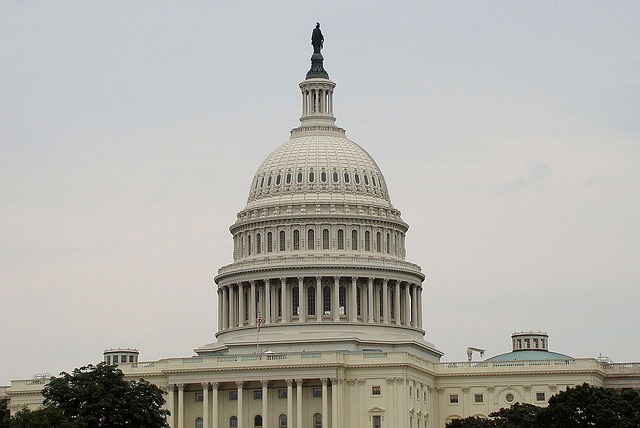Three of President Obama’s top cabinet members mounted their counter-offense for the landmark Iran nuclear deal Thursday in a hearing before the Senate Foreign Relations Committee, with Secretary of State John Kerry leading the charge.
Republicans on the committee didn’t hold back punches today, Sen. Bob Corker of Tennessee being the most critical during the hearing. He opened by saying that this deal would actually prepare Iran for a nuclear weapon, and that Mr. Kerry had been “fleeced” by Iran, according to the BBC.
Sen. Corker goes on to admonish Iran for its support of Shiite Militias in Iraq that frequently attacked U.S. troops during the occupation, which highlights a difference in arguments, reports the Los Angeles Times. Mr. Kerry argues that those issues are separate, that this deal was to address “the nuclear issue alone.”
This plan was designed to address the nuclear issue, the nuclear issue alone.
Among other notable Republicans, Sen. Marco Rubio chimed in with prophetic comments, saying that if the deal does possibly avoid “congressional defeat,” that “the next president is under no legal or moral obligation to live up to it.”
Still, Mr. Kerry defends the accord as a “good deal” for America. He says that the alternatives are a “fantasy, plain and simple.” One of the administration central arguments is that the alternative to a diplomatic solution is a military confrontation. Sen. Barbra Boxer reinforced this when she said she doesn’t “think the American people want another war,” and “that’s really the other option.”
The alternative to the deal we’ve reached isn’t what we’re seeing ads for on TV. It isn’t a better deal, some sort of unicorn arrangement involving Iran’s complete capitulation. That’s a fantasy, plain and simple.
The deal spans over a 15 year period in which Iran must comply with rigorous inspections. One of the more contentious aspects of the agreement is the 5 year period between year 10 and year 15. Critics assert that while the first decade of the deal greatly reduces the possibility of Iran achieving a nuclear weapon, the following 5 years will allow Iran to impressively expand its enrichment of uranium.
While the administration realizes that during the latter years of the agreement the “breakout” period – the time needed to obtain enough fuel for a bomb – would begin to fade away, other parts of the agreement would greatly reduce the breakout period from occurring suddenly.
And while Mr. Kerry was at the forefront, Treasury Secretary Jack Lew and Energy Secretary Ernest Moniz aided with their testimonies.
Secretary Lew responding to criticism that the agreement lifts sanctions to fast, said the agreement doesn’t stop the United States from imposing other sanctions for abuses, such as human rights violations.
Secretary Moniz counters critics of loopholes to international inspections by telling senators he is “confident that the technical underpinnings of this deal are solid.”
Reuters reports that under a bill signed by President Obama in May, Congress has until the 17th of September to either approve or reject the agreement. While Republicans hold the majority in both the Senate and the House, President Obama has promised to veto any rejection of the agreement.
























